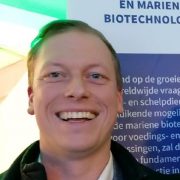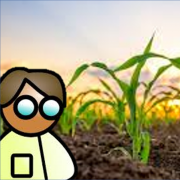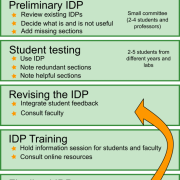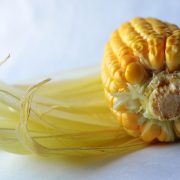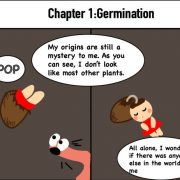Informational Interview with Professor David Parrott, Westminster University (PUI)
By Bret Hart, Conviron Scholar
I interviewed Dr. David Parrott, Ph.D. He is currently at Westminster University, but earned his Ph.D. in Plant Science at Utah State University after a B.S. in Botany and an M.A. in Biology from Humboldt State University. He is focused on teaching undergraduates at his current institution but has experience in research during his time as a Ph. D student and as a post-doc at Utah State University and Montana State university. I learned a lot from him about the different paths a Ph.D. graduate can take and his opinion on what makes a good professor. The interview is from his perspective.
Can you tell me about your past and current research?
My main focus has been plant-microbe interactions in soil, but earlier on I focused on a mutant called BYPASS1- essentially, this mutant doesn’t put on leaves and has a tiny root. It seems that it is involved in a signal propagation from shoot to root that involves ABA, and this seems to drive shoot apical meristem development. I am currently at Westminister University, which is primarily a teaching university, so research sort of takes a back seat here. However, during the summer, my undergraduates and I are developing a method to sequence 16s rRNA from soil to identify halophilic bacteria in saline conditions in the Great Salt Lake area.
Why did you do two post docs?
I had a short-lived faculty job that didn’t work out, and I was sort of in a “do-or-die” situation. The grant I was being funded by ran out and I had to find something, so I threw my CV out there and I ended up with Dr. Sieburth. Funny enough, I interviewed with her for my first post-doc and decided I wasn’t as interested in her work as some other PI’s, but my views changed during my first postdoc and I ended up really enjoying the work we did together. Point is, don’t close doors because you never know who your next boss will be!
What made you want to do a master’s before PhD?
Ah, yes; So, at CSU’s (California State Universities), they only offer master’s programs. I started out at Humboldt towards a degree in forestry, but I liked studying plants more, so I switched to botany. I found an interest in plant tissue culture and physiology and I was told by my advisors to stay and do a master’s. This, looking back, was probably a good idea; I wasn’t sure what I wanted to do, so getting a master’s was a good way to solidify what I wanted to do, and opened my eyes to graduate school and what it entailed.
In my opinion, if you know what you want to do- do it. This is the best plan if you have a good idea of what you’re getting into and you know what you want to do after. Going directly into Ph.D. was not as prevalent back then as it is now. Nowadays, Master’s degrees are sometimes a consolation prize for not finishing your Ph.D., but if you do a Master’s before you start your Ph.D., you can dip your feet into research and being a graduate student. In summary, Ph.D. is the way to go, unless you’re unsure on what path to take.
What was the decision process in becoming a professor?
For me, there was no real decision between industry and professor- I love doing research and teaching and getting the message out, so this position seemed worth-while to prepare the next generation of scientists. The decision, then, was between a research school and a teaching school- industry never really got a hold in my mind, I’ve always been holding out for this type of position.
Other colleagues of mine didn’t like teaching or being in classroom, they liked the lab. They got jobs in industry and seem to be enjoying it.
Westminster University is primarily a teaching institution. Can you touch on how this may be different from working at a research University?
There are a variety of schools you’ll come into contact with- it depends on what you want to do. Some schools are for teaching primarily, as is Westminster. However, if you can’t stay away from the bench, a research University may be more of your speed.
What makes someone a good candidate for professorship positions?
Cast a broad net- have a lot of varied interests. I’ve always like diversified professors- people who can fit disparate ideas together and connect knowledge from different areas to generate new knowledge. Cast a wide net and follow weird passions because you don’t know how they may connect.
Just by being a student and interacting with other students and faculty will help to develop a repoirte- if you like presenting data, interacting with other people, sharing information with other people, then becoming a professor may be something for you.
TAing, outreach, and interaction with people not in the science community is important to learn how to communicate your ideas and knowledge to a wider audience, which is essential to becoming a professor, especially when teaching. The more you talk to non-scientists about technical stuff- and the more you’re able to translate it to “non-science” speak- the better off you are to talk to undergrads to get them from not knowing to knowing something.
Any advice to Conviron scholar’s?
Biggest thing that helped me wrap up my research into a nice package was to do outreach. Talk to people not involved in science. This helps to take a step back and makes you realize what is important and helps you to focus- because it’s very easy to lose focus of why your work is important to you while on the bench. Lastly, don’t forget where you came from- you were an undergrad and eventually a graduate student at one point- understand these people’s point of view when moving on to your professional career.


